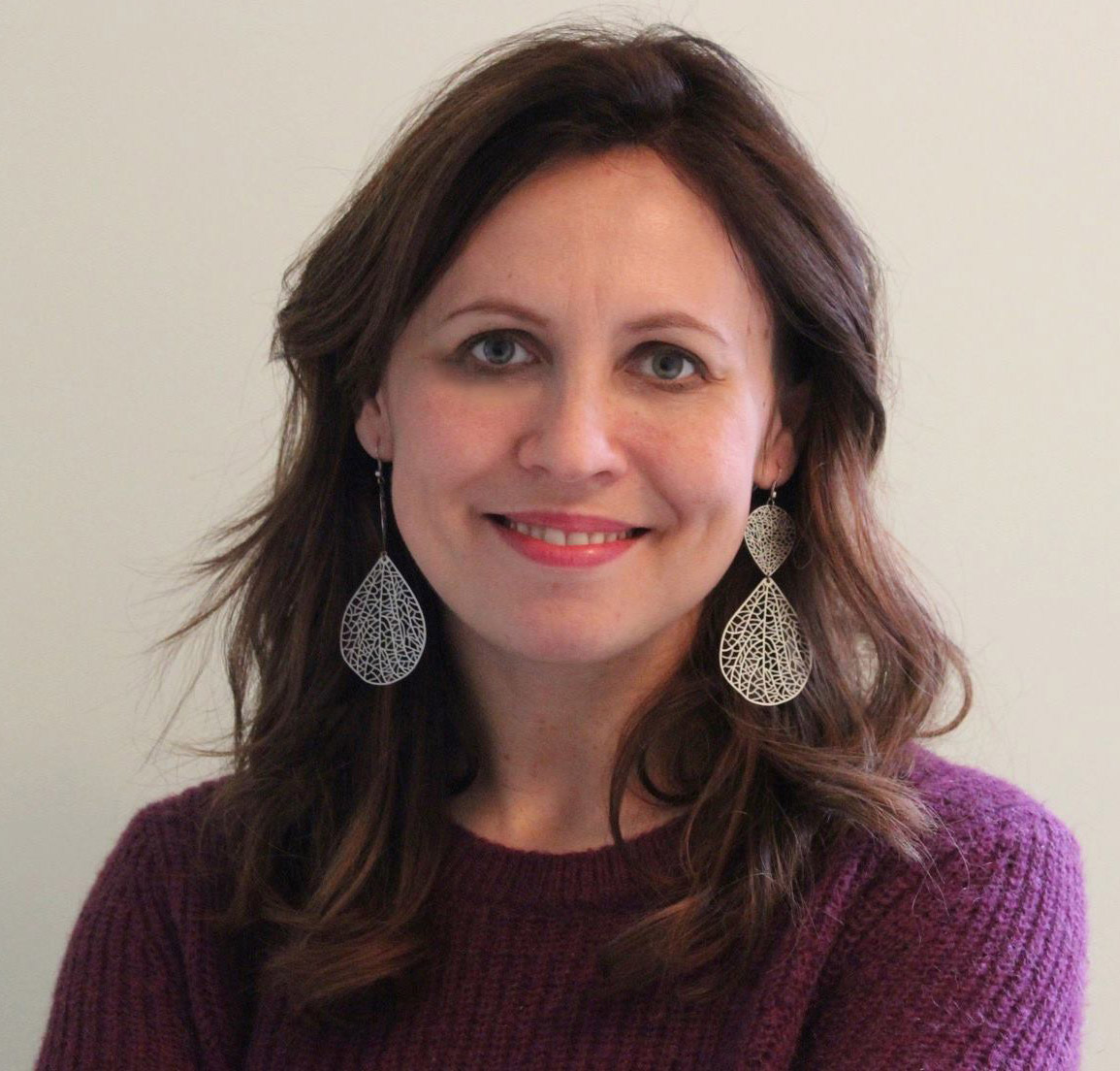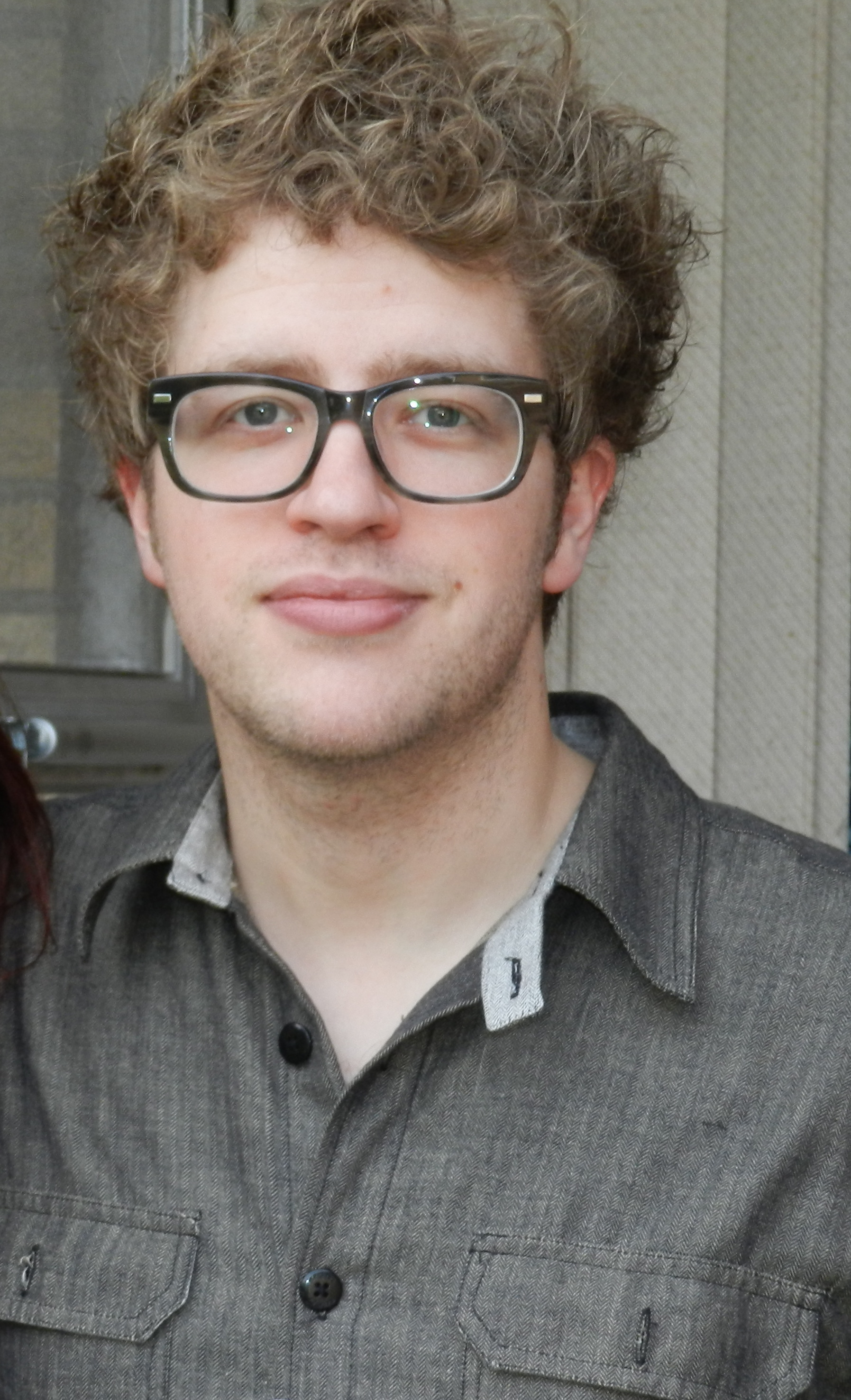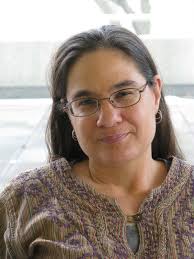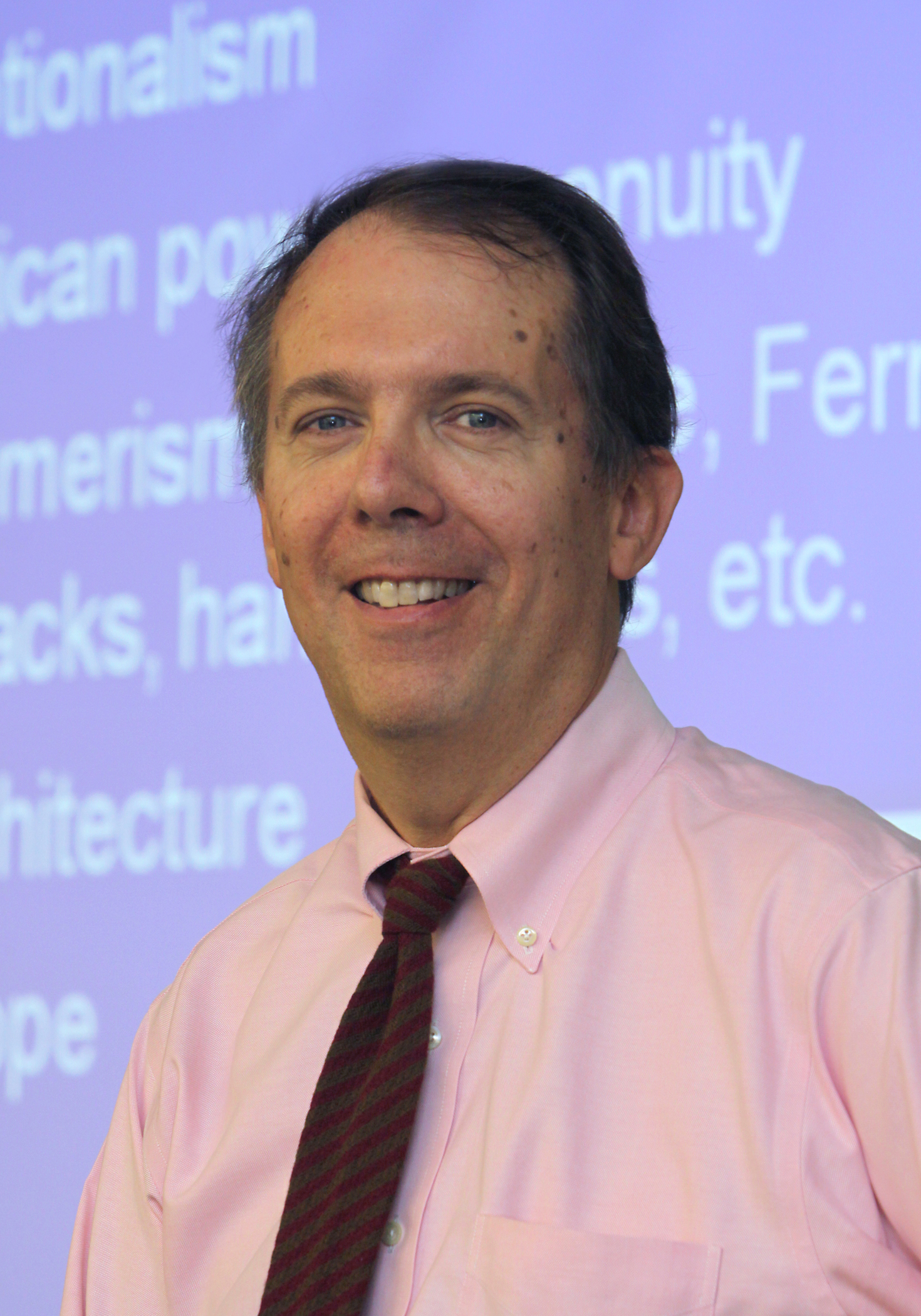There are over a hundred Case Western faculty teaching SAGES courses in any given semester. Among them are the SAGES Fellows. SAGES Fellows have pigeonholes in the SAGES Fellows’ Office Area (the Quad level of Crawford Hall), where essays and correspondence can be dropped off. You’re welcome to come to the SAGES facilities whenever you like, but your professors won’t always be there – please check with them beforehand what their office hours are, and to confirm where you’ll be meeting.
For a list of books written and edited by current and recent SAGES Fellows, click here.
For a directory of SAGES English Lecturers, click here.
BARBARA BURGESS- VAN AKEN
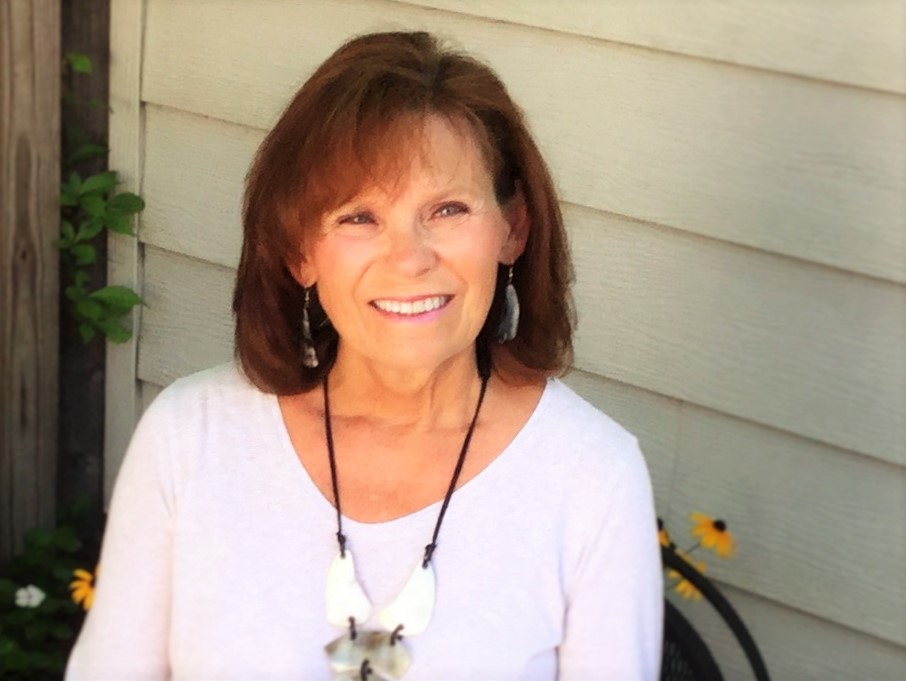 (Fall) FSSO119 – Philanthropy in America
(Fall) FSSO119 – Philanthropy in America
(Spring 15) USNA204 – The Evolution of Scientific Ideas
(Fall) USNA287P – Women and Science: Changing Paradigms
(Spring 15) USSY284 – The Art of Madness
After years as a higher education administrator and consultant for nonprofit organizations nationwide, I earned my Ph.D. at Case Western Reserve University. My research interests include early modern women writers (particularly playwrights), Shakespeare, and higher education pedagogy. My book, a bilingual translation of Barbara Torelli’s 1587 play Partenia won the Society for the Study of Early Modern Women’s 2014 award for best critical edition.
As a SAGES Fellow, I teach courses on a wide range of topics that draw on my earlier career in the nonprofit world as well as my literary research interests. In designing my seminars, I take a historical approach to introducing students to the concept of paradigm change, stressing the reflexivity of philosophical, cultural, and scientific ideas.
BILL DOLL
 (Spring 15) USSO285D – Advertising and the American Dream
(Spring 15) USSO285D – Advertising and the American Dream
(Fall) USSY291Q – PR, Spin and Inventing Reality
Bill Doll is the author of the primer SPEAK, How to Talk to Classmates and Others, which was developed for SAGES and has now been published by Oxford University Press. He is a lawyer with a doctorate in sociology and a former theater critic for The Plain Dealer in Cleveland. Bill heads his own communications and research consulting firm, Bill Doll & Company. Founded in 1988, the firm works on complex communications and advocacy issues. Clients have included banks, law firms, health systems, arts organizations and other not-for-profits, among them National City Corporation, KeyCorp, KPMG/Cleveland, Squire, Sanders & Dempsey, The CSA Health System, Playhouse Square Foundation and the Greater Cleveland Partnership. His articles and speeches for clients have appeared in The Wall Street Journal, The New York Times, Fortune Small Business, the Washington Post, the National Law Journal, Vital Speeches, among others. Bill is a former president of the Cleveland Chapter of the American Civil Liberties Union. For more background and work examples please see here.
NÁRCISZ FEJES
(Spring 15) FSSY280 – Passport to Eastern Europe
(Spring 15) USSY286V – Food Craze (No) Reservations
(Fall) FSSO176 – Savor
(Fall) USSO286E – Global Tourism
Nárcisz’ primary research interests and teaching experience are in interdisciplinary and comparative studies of gender and sexuality in literature, film, media and cultural studies. Her work also extends into the areas of globalization, studies of representation and identity, and tourism. In her class “Passport to Eastern Europe,” students familiarize themselves with the constructed and textual nature of geopolitical categories such as continents, nation states, and the concepts of East and West. They also gain an understanding of the special histories and cultures of the borderlands of Eastern Europe and its literary and cinematic representations. In her “Global Tourism” class, students consider various tourist activities with critical distance and address their ethical dimensions. Her courses place much emphasis on helping students evaluate cultural encounters and contexts and develop into responsible and culturally sensitive observers. Both of these classes include segments drawn from Nárcisz’ research on the ways in which literary works, films, and the media portray sex tourism and sex trafficking in the former Soviet bloc. She also analyzes practices of migrant work on the European continent and their gender implications, the growth of the mail-bride industry, and the shifting definitions of masculinity in Eastern Europe. Nárcisz has a Ph.D. in English from Case Western Reserve University and completed her pre-doctoral studies in the United States, Finland, and Hungary. She also participated in a seminar organized by the University of Amsterdam’s School for Cultural Analysis on “Media,Globalization, and Post-Communist Eastern European Identities” in 2006. Nárcisz is a recipient of various teaching awards, including the inaugural Richard A. Bloom, M.D., Award for Distinguished Teaching in the SAGES Program. She enjoys traveling and plans to learn documentary film-making.
PAUL HANSON
 (Spring/Fall) USSO289K – Justice and Social Complexity
(Spring/Fall) USSO289K – Justice and Social Complexity
Paul Hanson is an anthropologist/folklorist working in the United States and Madagascar. His primary research interest is the interrelations between the people indigenous to the southeastern rainforest regions of Madagascar and the international group of conservationists concerned with the island’s natural resources. In considering such interrelations, Hanson focuses on communication dynamics (especially ritual communication), conservation and development rationales, and democratic processes. A second, and more recent, research interest is in forms of political action specific to 1960s Cleveland, Ohio. He is currently writing a book on the Hough and Glenville riots that occurred in the city. Hanson’s pedagogical approach owes a great deal to the Brazilian educator and educational theorist Paulo Friere’s understanding of education as a “practice of freedom”. Accordingly, his efforts to teach social scientific concepts and methodologies are inseparably tied to struggles to overcome injustices and efforts to identify and transform debilitating ideologies. Hanson currently teaches the University Seminar course “Struggles for Justice in Globalizing Environments” for SAGES.
CHRISTINE HENRY
(Spring 15) USSO288B – Doing Good: How Nonprofits Change Lives
Chris has been employed by and volunteered for nonprofit organizations for her entire career, in the U.S. as well as abroad. Her work included being the executive director of a microenterprise organization and the director of a family foundation. Previous positions in the nonprofit sector include public relations, volunteer management, continuing education, hospital administration, community development, and serving as a board member for many organizations. She has a BA in Sociology from Hiram College, a Master of Nonprofit Organizations from the Mandel Center for Nonprofit Organizations at Case Western Reserve University, and is a certified personal coach. She also teaches the Doing Good course at Hiram College. A lifelong Clevelander, she resides in Cleveland Heights.
MARY HOLMES
 (Spring 15) USNA224 – Food, Farming and Economic Prosperity
(Spring 15) USNA224 – Food, Farming and Economic Prosperity
Mary Holmes has been involved with the local food movement in Cleveland since 1994 when she co-founded the North Union Farmers’ Market in Shaker Square. She served as that organization’s board president for eight years. In 2005, she wrote a report for The Farmland Center, “Entrepreneurial Farming: Part of the Plan for Economic Prosperity in Northeast Ohio.” In 2006 she became a SAGES Fellow at Case Western Reserve University where she teaches an undergraduate seminar on the topic of changes to the American food system and diet since World War II and the promise of sustainable agriculture. She attended Terra Madre in 2008 and advisors the Slow Food on Campus at Case Western Reserve University. She is currently board president of Innovative Farmers of Ohio, a statewide non-profit organization dedicated to sustainable farming in Ohio. As an independent consultant, Mary has worked primarily with non-profits leading strategic planning and new product development efforts. Mary received her BA in American Studies from the University of Michigan, an MAT degree from Johns Hopkins University, and an MBA from Harvard University.
KEVIN HOUSER
CHRISTINE HUDAK
 (Spring 15) USSO201 – Society and Technology: Impact
(Spring 15) USSO201 – Society and Technology: Impact
Christine A. Hudak, Ph.D., RN-BC, CPHIMS, FHIMSS of Cleveland, Ohio, is a professor of Health Informatics in the School of Library and Information Science, Information Architecture and Knowledge Management (IAKM) program. She is also the Concentration Coordinator of the Health Informatics program and a Contributing Interdisciplinary Faculty Member in the School of Digital Sciences.
Dr. Hudak brings to the position more than 30 years of experience in the health care field, including numerous teaching and instructional development roles. She was involved in the first information system implementation at Cleveland’s MetroHealth Medical Center in 1985 and continued to advance professionally and academically in that field. Most recently she served as associate professor, director of the MSN in Nursing Informatics Program and director of Nurseweb at Case Western Reserve University (CWRU) in Cleveland.
As a widely recognized author, co-author and invited presenter on matters relating to health informatics, Dr. Hudak most recently published “Development and testing of nurses information system benefits instrument” in Perspectives in Health Information Management (2011) and “Information systems use, benefits, and satisfaction among Ohio RNs” in CIN: Computers, Informatics, Nursing (2011). She also serves as a peer reviewer for Journal of Nursing Measurement, Journal of Professional Nursing, Journal of American Psychiatric Nurses Association and Journal of Healthcare Information Management, among others. Her current research interests are educational technology in health care education, university based training for health information technology, use of emerging technologies in the delivery of health care, and Public Health Informatics.
Dr. Hudak’s professional affiliations include the American Medical Informatics Association, the American Nursing Informatics Association, the American Society of Health Informatics Managers, and the National Institutes of Health Informatics in Canada, to name a few. She has been recognized by Who’s Who in Medicine & Healthcare, Who’s Who in America’s Teachers, Who’s Who in American Women and Who’s Who in America. In 2011 she received the Outstanding Faculty Member Award given by the Inter fraternity Congress and Panhellenic Council of Case Western Reserve University. She is a Certified Professional in Health Information Management Systems and a Fellow of the Health Information Management Systems Society. She is a member of the Health Informatics Society of Ireland and is a United Kingdom Certified Health Information Professional.
After receiving her B.S.N. from Case Western University, she received her M.Ed. in postsecondary education at Cleveland State University (CSU), focusing on adult learning, curriculum development and instructional design. Her post-master’s work in post-secondary education at CSU involved a concentration in educational administration and computer uses in education. She received her Ph.D. from CSU in urban education administration. Her dissertation title was: “Organizational Factors in the Implementation of End User Computing Systems in Ohio Hospitals.”
BERNARD L. JIM
 (Fall) FSNA116 – Cities (Under Construction)
(Fall) FSNA116 – Cities (Under Construction)
(Spring) USSY286U – Puzzled
(Fall, Spring) USSY290C – Out of Proportion
(Fall) USSO285I – Spectacle in American Culture
Bernie earned a Ph.D. in History at Case Western Reserve University in August 2006. In his dissertation, Ephemeral Containers: A Cultural and Technological History of Building Demolition, he examines the history of wreckers and wrecking machines, and uses an exploration of the discourse surrounding building demolition as a window into the impact of modernity on notions of progress, the construction of identity, and the American public’s relationship to the built environment. He has presented his work before the societies for historians of technology and historians of architecture, and has published an article on the razing of city hotels in the Journal of Decorative and Propaganda Arts, Issue 25, on “The American Hotel.” Bernie has taught courses in American History, Technology and Culture, and Technology and Society for Cleveland State University, Weatherhead School of Business, and the history department of Case Western Reserve University. In addition to his academic work, Bernie has experience circulating, maintaining, and developing temporary exhibitions for science and technology museums, and has acted as a researcher in the field of cultural resource management. In his SAGES courses, he asks his students to reconsider the role of the commonplace and the remarkable in the built world and the natural world.
EMILY LAURANCE
Before coming to Case Western Reserve University, Emily Laurance served as chair of music history at the San Francisco Conservatory of Music, where she taught courses on Verdi, nineteenth century French opera and the symphonic poem. She received her Ph.D. in musicology from the University of North Carolina at Chapel Hill, and degrees in harp from the Oberlin and the New England Conservatories. She has a broad scholarly and performing background, with research areas that include early camp meeting hymnody, early 20th-century American ultramodernism, and the French vocal romance of the late eighteenth century. Dr. Laurance’s most recent publication is an essay on the use of Parisian street vendor cries in late nineteenth century French opera. She is a frequent concert lecturer, including for the San Francisco Opera and the Cleveland Orchestra. As a performer she most recently served as Principal Harp with the Stockton Symphony and still performs regularly with the Avedis Chamber Series at the Legion of Honor in San Francisco. With Boston tenor Thomas Gregg Laurance co-founded the duo DoubleAction, an ensemble that specializes in harp-accompanied song performed on an 1829 single-action harp. Her recording credits include Luciano Berio’s Sequenza II on Neuma Records as well as the Squirrel Nut Zippers album Perennial Favorites, which won the Recording Institute Association of America’s Gold Sales award. Prior to her work at the San Francisco Conservatory, she held a postdoctoral fellowship at the John W. Kluge Center at the Library of Congress and taught harp at UNC-Chapel Hill and Duke University.
DAVID LUCAS
(Spring 15/Fall) USSY290U – Poetry for People Who Hate Poetry
(Fall) USSY291U – Live Rust: The Industrial Midwest in Art and Culture
Dave Lucas is a writer, teacher, and promoter of the literary arts. Born and raised in Cleveland, he studied literature and poetry at John Carroll University (BA, 2002), the University of Virginia (MFA, 2004), and the University of Michigan (PhD, 2014). His first book, Weather (Georgia, 2011), received the 2012 Ohioana Book Award for Poetry. He has contributed both to regional (Belt, Cleveland Magazine, Edible Cleveland, The Plain Dealer) and national (Granta Online, The Kenyon Review, The Nation, Orion, The Paris Review, Poetry, Slate, The Threepenny Review, The Virginia Quarterly Review) publications. A co-founder of the Brews + Prose literary series at Market Garden Brewery, he also teaches at the Sweet Briar Creative Writing Conference, the John Carroll Young Writers Workshop, and the Cleveland Clinic Program in Medical Humanities.
HOWARD MAIER
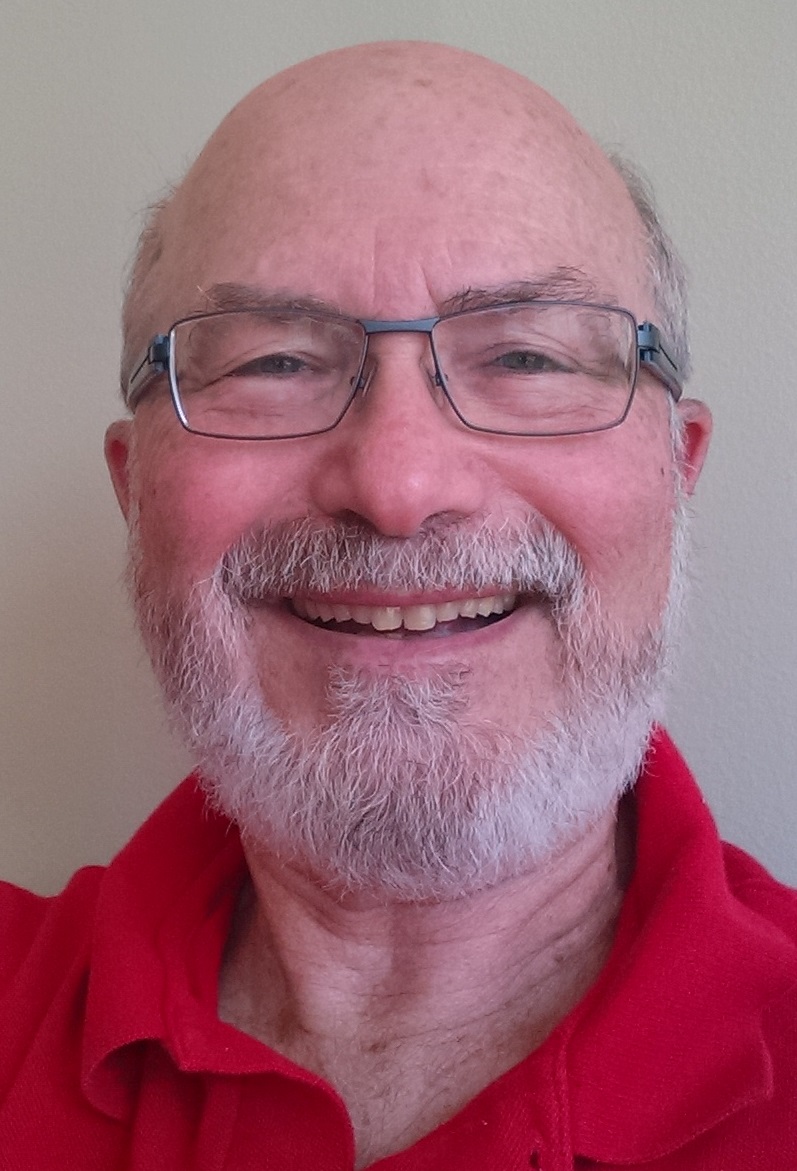 (Spring) USNA287J – Transportation in American Life
(Spring) USNA287J – Transportation in American Life
Howard Maier has worked many years in transportation planning, city and regional planning as well as public administration. He retired in 2012 as Executive Director of the Northeast Ohio Areawide Coordinating Agency (NOACA), a position he held for more than two decades. NOACA provides transportation and environmental planning for Cuyahoga, Geauga, Lake, Lorain, and Medina Counties. Prior to NOACA, Mr. Maier held other public and private sector positions, including Director of Planning and Development for the City of Cleveland Heights. During his career, Mr. Maier received a number of professional awards and honors. Among others, he is a Fellow of the American Institute of Certified Planners. He also received a Distinguished Alumnus award from the College of Engineering at Ohio State University and was inducted into the Mayfield High School Alumni Hall of Fame. Prior to retirement, he served as President of the Ohio Association of Regional Councils and Treasurer of the Northeast Ohio Sustainable Communities Consortium. Among his current civic activities, Mr. Maier chairs the Senior Transportation Connection of Cuyahoga County. He serves as vice-chair of the Cuyahoga Soil and Water Conservation District. He also co-chairs the Cleveland Heights Transportation Advisory Committee. He has a B.A. (Economics) and a Master of City and Regional Planning both from Ohio State University as well as an M.S. in Public Management from Case Western Reserve University. A lifelong cartoonist, he drew editorial cartoons for the Sun Newspapers in the mid-1970’s and co-wrote the script of the animated cartoon entitled It’s the Greatest Little City. He is married to Sue Maier, a CWRU alumna. They have three adult children and two grandchildren.
DANIEL MELNICK
 (Fall) FSSY155 – The Nature of Creativity
(Fall) FSSY155 – The Nature of Creativity
Daniel Melnick is an emeritus professor of English from Cleveland State University, and he has taught in the SAGES program (and occasionally in English) since his retirement from CSU in 2005. The focus of his teaching and research is twentieth century literature and particularly the modern period. His book on music and modern fiction is Fullness of Dissonance: Modern Fiction and the Aesthetics of Music (Fairleigh Dickinson, 1994), and a series of his essays on modern fiction has appeared in various journals – the latest article being about Joseph Conrad’s Under Western Eyes. His on-going series of ‘notes on the modern period’ can be found here. He is also the author of a series of short stories and three novels, Hungry Generations, Acts of Terror and Contrition and the The Ash Tree (2015, West of the West Press), which tells the story of an Armenian-American family in California from 1915 to 1972, and was nominated for the Saroyan Writing Prize. His B.A. and Ph.D. in English are from the University of California at Berkeley.
LISA NIELSON
(Spring 16) USSO287V – Gender and Seclusion: The Courtesan
(Spring 16) USSO287Z – Concubines, Soldiers and Field Hands: World Slavery
(Fall) FSSY 171 – Exploring the Harem
(Fall) USNA 287V -People with Tails and Hollow Women: Defining Human Diversity in the Ancient and Medieval World
Lisa Nielson is the inaugural Anisfield-Wolf SAGES Fellow and appointed as a Lecturer in Music at Case Western Reserve University in Cleveland, Ohio, where she teaches classes on diverse topics such as the courtesan, the harem, and world slavery. While at Case, she has been nominated for several prestigious teaching awards, receiving the Richard A. Bloom, MD Award for Distinguished Teaching in the SAGES Program in 2012, the Carl F. Wittke Award for Excellence in Undergraduate Teaching in 2014, and the J. Bruce Jackson, MD Award for Excellence in Undergraduate Mentoring in 2016. Her research focuses on musicians, musical culture and the relationship between music and society in the medieval Islamic courts. She regularly presents at national and international conferences, and her professional affiliations include the American Musicological Society, the Middle East Studies Association, and the Middle East Medievalists. Nielson received an overseas travel grant from the Baker-Nord Center for the Humanities in 2013 and is a 2015-16 recipient of a Balzan Musicology Research Visitorship, which enabled her to spend two months conducting research in Jerusalem. She has published in Early Music History and has a forthcoming article in an essay collection on women in the medieval Islamicate world published by Oxford University Press. Dr. N’s other interests include social justice and contemporary literature, and she has contributed reviews and opinion pieces to the Journal for the Society of American Music and the blog for the Anisfield-Wolf Book Awards. A devotee of Henry Rollins and punk rock, her hobbies include loud music, needlepoint, inflicting bad movies on her students each semester for Movie Night and gleefully eschewing all social media.
Dr. N’s other interests include popular music and contemporary literature, and she has contributed reviews and opinion pieces to the Journal for the Society of American Music and the blog for the Anisfield-Wolf Book Awards. A devotee of Henry Rollins and punk rock, her hobbies include loud music, inflicting bad movies on her students each semester for Movie Night and ignoring her new Twitter account.
ANNIE PECASTAINGS
(Fall) FSCC/ESL
(Spring 15) USSO289V – To Everest and Back
(Spring 15/Fall) USSY287X – Paris in the Arts
BRAD RICCA
(Fall) FSSY154 – The Imagination Project
(Fall) USSY289Y – Reading and Writing Biography
Brad Ricca got his Ph.D. in English from CWRU. His book Super Boys: The Amazing Adventures of Jerry Siegel & Joe Shuster -The Creators of Superman (St. Martin’s, 2013) was named a Top 10 Book in the Arts by Booklist and won the 2014 Ohioana Book Award for Nonfiction. He has spoken about comics in The Wall Street Journal, The New York Times, The Christian Science Monitor, The Boston Globe, and on NPR’s “All Things Considered.” He won the St. Lawrence Book Award for his first book of poetry, American Mastodon, and is also a filmmaker whose documentary, Last Son, won a Silver Ace Award at the Las Vegas International Film Festival. In 2014, he was awarded a Cleveland Arts Prize for Emerging Artist in Literature.
MICHAEL SANGIACOMO
(Spring 15) USSY275 – Colors, Capes and Characters
Michael Sangiacomo has been a hard news reporter for the Plain Dealer in Cleveland since 1989 and has written a syndicated column on comic books since 1993. He has taught Colors, Capes and Characters, a history of comic books in America, since 2006. The course allows him to combine his love of comics with his journalism background. He has written several comic series and graphic novels himself, including the award-winning Tales of the Starlight Drive-In and Phantom Jack, the adventures of a newspaper reporter who can turn invisible. Hard to figure out where that one came from.
ANDREA SIMAKIS
(Spring 15) USSO243 – Making Facts Dance
BEN SPERRY
USSO290M – The Impact of Race, Class and Education: A Dialogue on Current Issues
Benjamin Sperry is an educator, historian and writer with a particular interest in race, incarceration, civil rights, the American South (especially Mississippi), and slavery. He has a background as a political campaign organizer, magazine and newspaper journalist, classroom teacher (in social studies and creative writing) in the Cleveland public schools, college history professor, teacher in a prison setting, and freelance writer. His SAGES course, which he created in 2013, involves teaching not only CWRU undergraduates but also a group of students incarcerated at Lorain Correctional Institution, a state prison in Grafton, Ohio. Originally from Connecticut, Sperry holds a bachelor’s degree from Connecticut College, a master’s from Wesleyan University, and a Ph.D. in history from CWRU.

